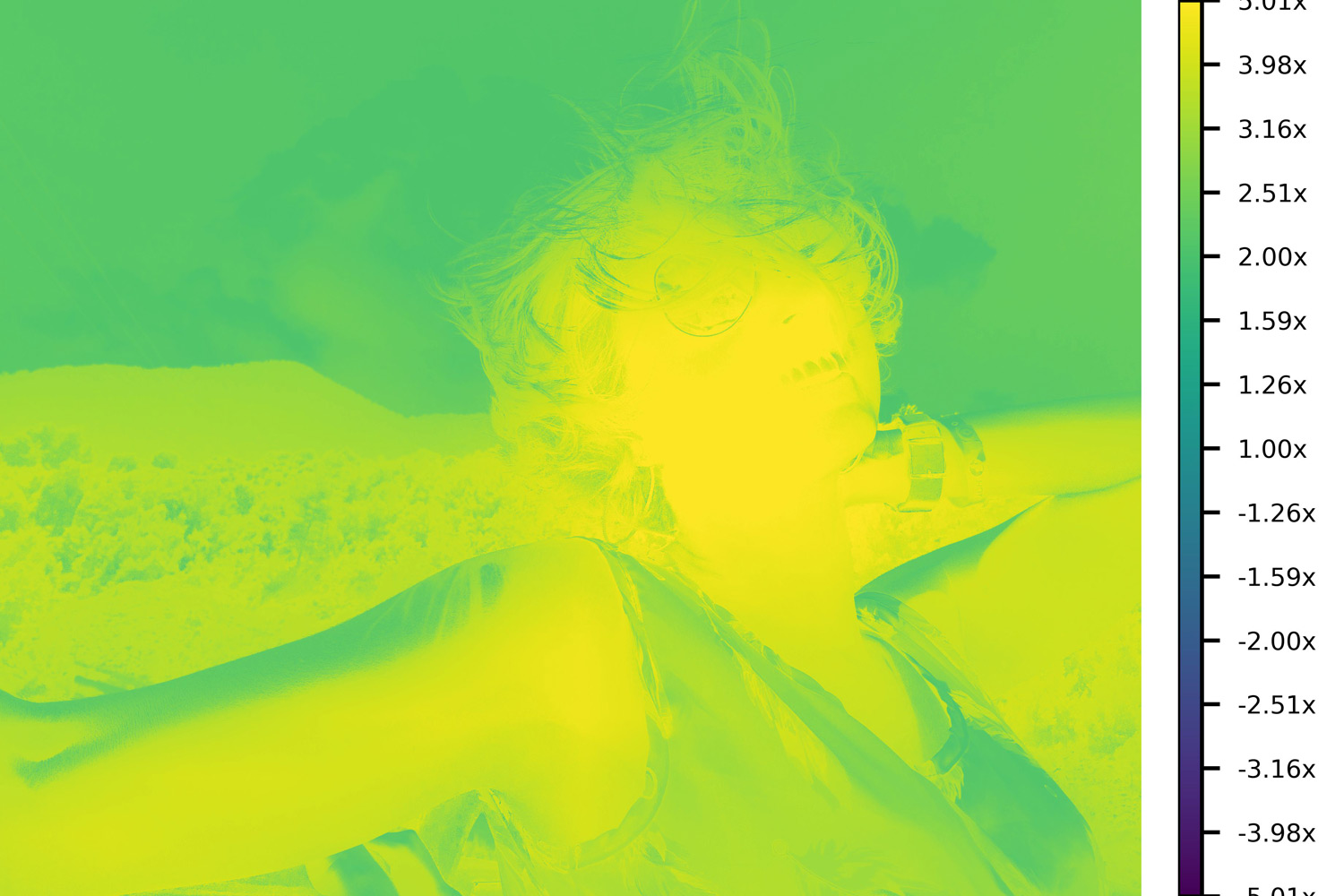While smartphone cameras are pocketable, professional lighting equipment is not — so one company is looking to artificial intelligence to mimic photographic lighting with just an app. Relonch Alfred is an iOS app that uses machine learning to correct badly lit photos, adjusting each area of the image separately to correct dark, imbalanced snapshots. By creating exposure and color maps, Alfred can correct the lighting using a single slider instead of multiple controls and localized edits, all without requiring a dual lens camera. The app, currently in a demo stage, was officially announced May 15.
Alfred comes from Relonch, the company that created the A.I.-powered camera that edits photos for you. With Alfred, the company’s A.I. editing moves beyond the Relonch camera to smartphones.
Instead of the depth maps created from dual-lens cameras, Alfred creates a color and exposure map of the photo, noting where the lightest and darkest areas of the image are located. That data allows the software to apply localized edits with a single slider adjustment, brightening up the darkest portions of the image while leaving the properly exposed areas of the image untouched.
Alfred, named after photographer Alfred Stieglitz, is based on some of the same A.I. behind the Relonch camera. A 25-member editing team took nearly two years to manually edit 100,000 photos. Those manual adjustments were fed to the machine learning software to teach the program how to create localized adjustments (or edits that are made only to a specific portion of the photo instead of the entire image). Once the program was created, the team also went back and re-edited photos in order to improve the A.I..
The exposure and color maps are the key to how Alfred compares to other photo editing apps. Co-founder and COO Yuriy Motin said that counter to most other apps, Alfred looks at light, rather than using filters, to edit the image. That’s an important difference, he says, because light works to create the mood of the story within a photo.
Editing bad lighting is just the start for the app that’s now only in demo stages. While the light editing feature works off a cloud-based A.I., the team is working on moving the A.I. to the device so photos can be processed locally. The team is also working on a beta version of the software that works on video while it’s being recorded, bringing the same automatic exposure corrections used in still photos to video.
While the app doesn’t require any special kind of camera, Relonch is developing a version that will make use of depth maps on dual-lens smartphones. By mixing the exposure mapping with depth mapping, the software can recreate cinematic lighting effects, such as backlighting or stage lighting. Unlike the Portrait Mode on the iPhone X, Relonch’s A.I. allows the feature to work with any subject, not just people, and applies the lighting effect to the entire scene.
“The key part of our technology is the intelligence of our A.I. that adds drama into each story, filling it with an atmosphere the user originally intended, while keeping the image natural looking,” said Sergey Korzhenevich, Relonch co-founder and CEO. “Imagine a professional photo or video crew where the gaffer holds up light sources to remove shadows and harshness — our technology does all of that behind the scenes.”
Relonch Alfred is currently available on the App Store as a demo version with the ability to edit light on existing photographs. The team plans to add video compatibility over the next few weeks, while the ability to recreate light using depth maps is slated for a fall arrival. The team also plans to release an Android app in the future.
Alfred is currently free, but as the app expands, additional features — such as an option to edit multiple images at once — will roll out as an in-app purchases.
Editors' Recommendations
- Here’s how Apple could change your iPhone forever
- Here are Apple’s secret plans for adding AI to your iPhone
- Are we about to see ‘the iPhone of artificial intelligence’?
- I found a secret AI photo-editing app for Samsung phones
- ChatGPT’s iPhone app now has Bing built-in








